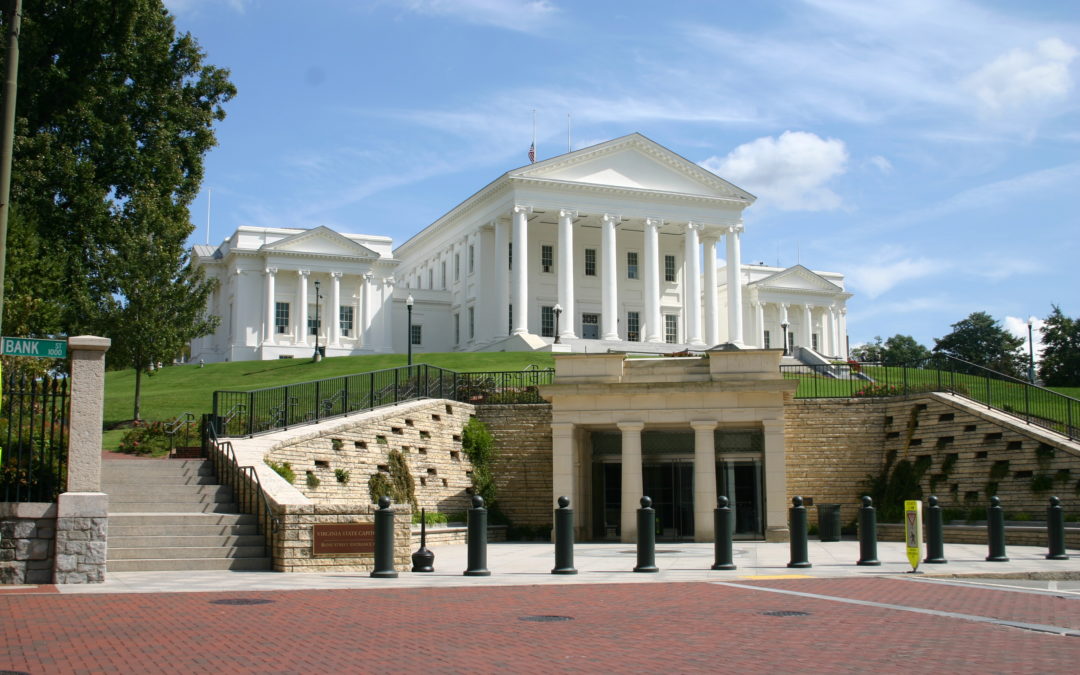On Wednesday, the House and Senate returned to the Capitol to continue our work on the biennial state budget. You will recall that we adjourned the regular session in March without a budget, and that a small team of budget negotiators known as conferees have worked to find a compromise that both chambers can agree to. Their compromise is known as a conference report.
The compromise budget isn’t perfect. When two different political parties are in charge of the legislature, it requires some give and take. Ultimately, I voted yes on this budget, as did 88 of my colleagues.
In this email update, I’d like to highlight a number of subject areas included in this budget that will benefit Virginians.
The Pros
First, this budget includes a much needed $4 billion in tax relief. That includes:
- Elimination of the state portion of the grocery tax
- Increases the standard deduction, going from $4,500 to $8,000 for single filers and from $9,000 to $16,000 for joint filers
- Provides a refundable earned income tax credit at 15 percent of the federal level
- Provides a tax rebate of $250/individual or $500/couple
- Exempts from taxation the first $40,000 in military retiree pay
Public education is a key component of this budget, bringing state funding levels back to levels not seen since before the Great Recession. In fact, it is the largest K-12 investment in state history. This portion of the budget includes:
- Two 5% raises for teachers (one in each year of the biennium)
- $1,000 bonus using federal ARPA funds
- $3 billion for school construction and renovation
- $45 million in grants to assist school divisions with hiring school resource officers (SROs)
- $100 million to fund new lab schools in partnership with HBCUs
In the higher education field, the budget limits tuition increases to no more than 3% (many have already announced they will not raise tuition). Additional funds are appropriated for financial aid, including an increase in funding for the Virginia College Affordability Network (VCAN) for Virginia State University students.
More than ever, it is important to support our men and women in law enforcement who put their lives on the line for our communities. This budget makes public safety a priority. Included in this section of the budget is:
- $47 million over the biennium in “599” funding to local police departments
- $75 million in federal ARPA funds for one-time grants to local police departments to support equipment purchases and training
- Targeted funding for pay increases and compression pay relief within the Department of State Police, Department of Corrections, and local sheriff departments
Over the last several years, there has been a significant push to adjust the Medicaid reimbursement rates. This budget accomplishes that in the following ways:
- $377.0 million to increase Medicaid developmental disability waiver rates over the biennium
- $85.9 million to increase personal care rates by 7.5% over FY2022 rates for consumer- directed and agency-directed attendants
- $77.5 million to provide a 30% rate increase Medicaid dental rates, the first increase since 2005
Additionally, the budget provides funding for 600 new Medicaid waiver slots starting in FY24 to ensure that Virginians with disabilities can obtain the necessary care they deserve.
Importantly, this budget proposal is a balanced budget as required by the Constitution of Virginia. There are no tax or fee increases, and no new general fund supported debt. Additionally, this proposal increases the state’s rainy day fund to a record $3.9 billion level that protects our coveted AAA bond rating and helps guard against a future economic downturn. Spending is often the flashy part of a budget, but ensuring that it is structurally and financially sound is vitally important to the Commonwealth’s fiscal health.
The Cons
As I noted earlier, this budget is a compromise between both parties. There are parts that I’m frankly not thrilled about. But when the budget is looked at as a whole, I believe it merited a yes vote.
While the budget does include $4 billion in tax relief for Virginians, it unfortunately does not factor in the Governor’s proposed gas tax holiday. With the rising price of gas nationwide, a temporary reprieve in the gas tax would have directly benefited Virginia families and small businesses.
I am also not pleased with the amount of “legislating through the budget” that occurred. Specifically, this budget includes significant language regarding marijuana reform, skill games, and casinos. The House and Senate both considered legislation on these topics during the recent session and we were unable to come to a consensus. These matters should be settled through the normal legislative process.
With the passage of the budget, it now goes to Governor Youngkin for his consideration. Following receipt of the bill, he has seven days to return the budget with his amendments that will then be voted on by the House and Senate. The new fiscal year begins July 1.
I was not able to cover every aspect of the budget in this email. If you have any questions, feel free to reach out to me at DelMCherry@house.virginia.gov. You can also visit https://budget.lis.virginia.gov/ for more information.
It remains an honor to represent our community in the House of Delegates. If I can assist you or your family with a state related matter, please let me know.
Sincerely,
Mike Cherry

